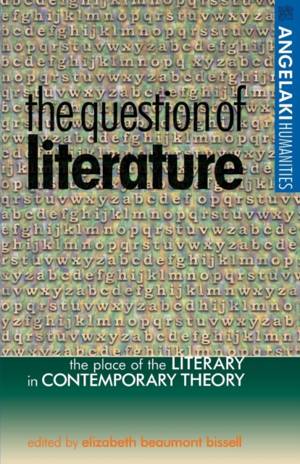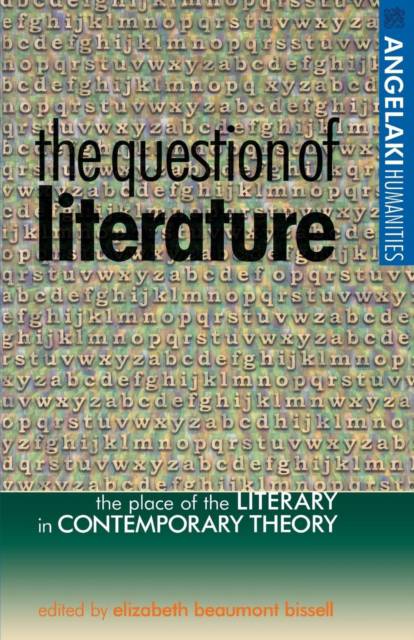
- Afhalen na 1 uur in een winkel met voorraad
- Gratis thuislevering in België vanaf € 30
- Ruim aanbod met 7 miljoen producten
- Afhalen na 1 uur in een winkel met voorraad
- Gratis thuislevering in België vanaf € 30
- Ruim aanbod met 7 miljoen producten
Zoeken
The Question of Literature
The Place of the Literary in Contemporary Theory
€ 48,45
+ 96 punten
Omschrijving
As literary theory has grown more influential, interdisciplinary and sophisticated, it has come to concern itself with a much greater range of issues and objects than those traditionally considered literary. It now addresses philosophy, history, psychology, politics and the media. Addressing a central and fundamental, but relatively neglected, issue in literary theory, this title seeks to recontextualise how theory has changed our understanding of literature and its questions by relating literature to the institution of the university, to ethical judgements and values, new media and computer technology and the nature of representative democracy.
Specificaties
Betrokkenen
- Uitgeverij:
Inhoud
- Aantal bladzijden:
- 256
- Taal:
- Engels
- Reeks:
Eigenschappen
- Productcode (EAN):
- 9780719057458
- Verschijningsdatum:
- 31/10/2002
- Uitvoering:
- Paperback
- Formaat:
- Trade paperback (VS)
- Afmetingen:
- 140 mm x 218 mm
- Gewicht:
- 312 g

Alleen bij Standaard Boekhandel
+ 96 punten op je klantenkaart van Standaard Boekhandel
Beoordelingen
We publiceren alleen reviews die voldoen aan de voorwaarden voor reviews. Bekijk onze voorwaarden voor reviews.






